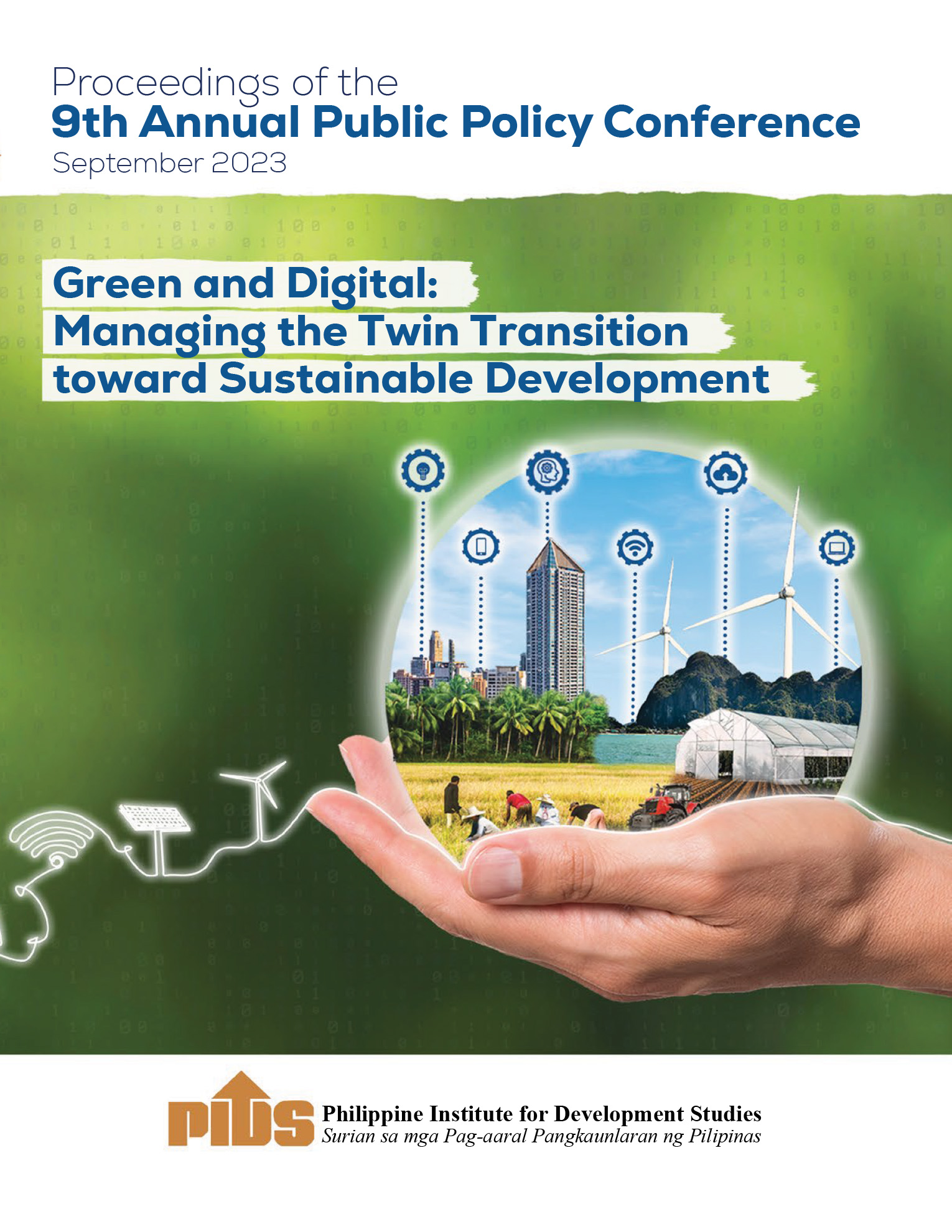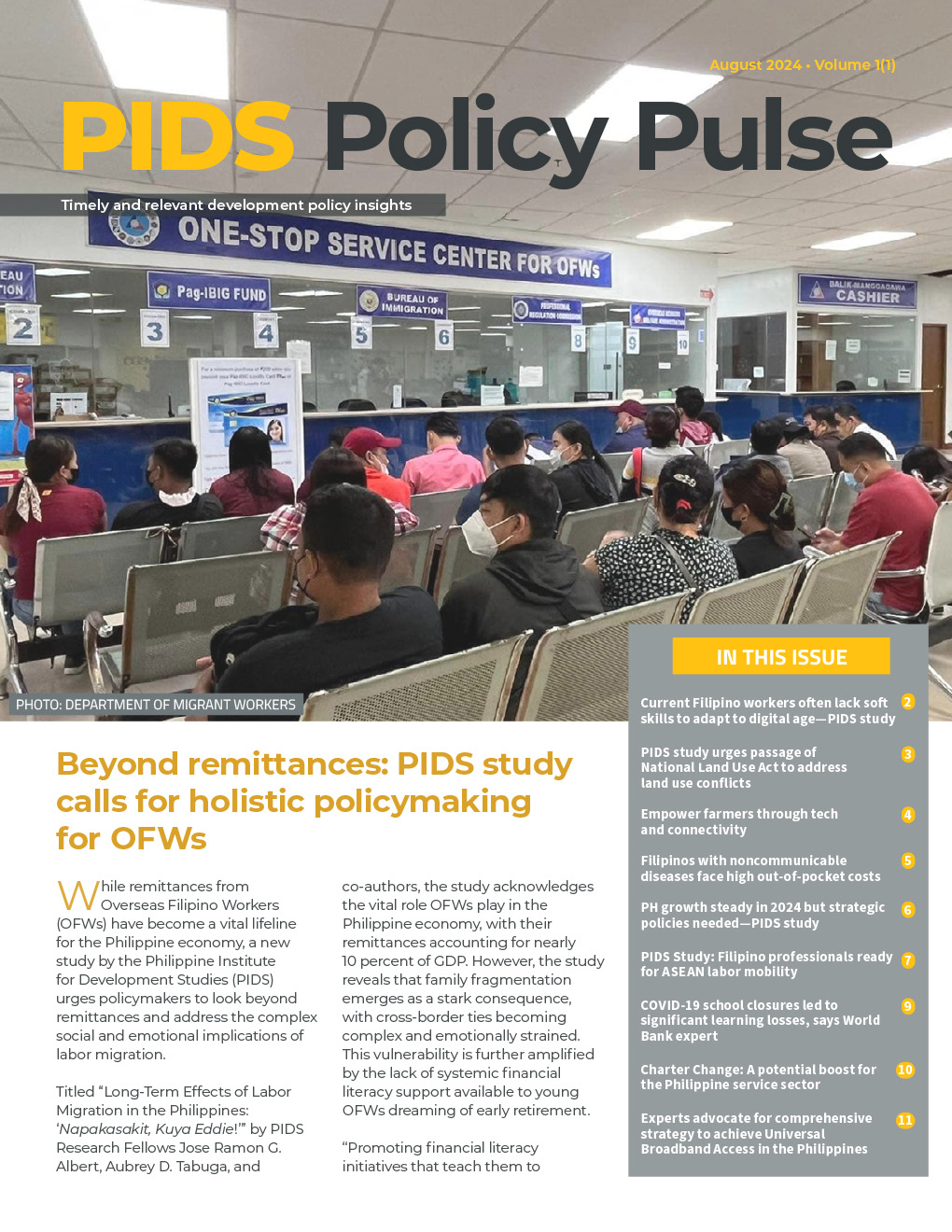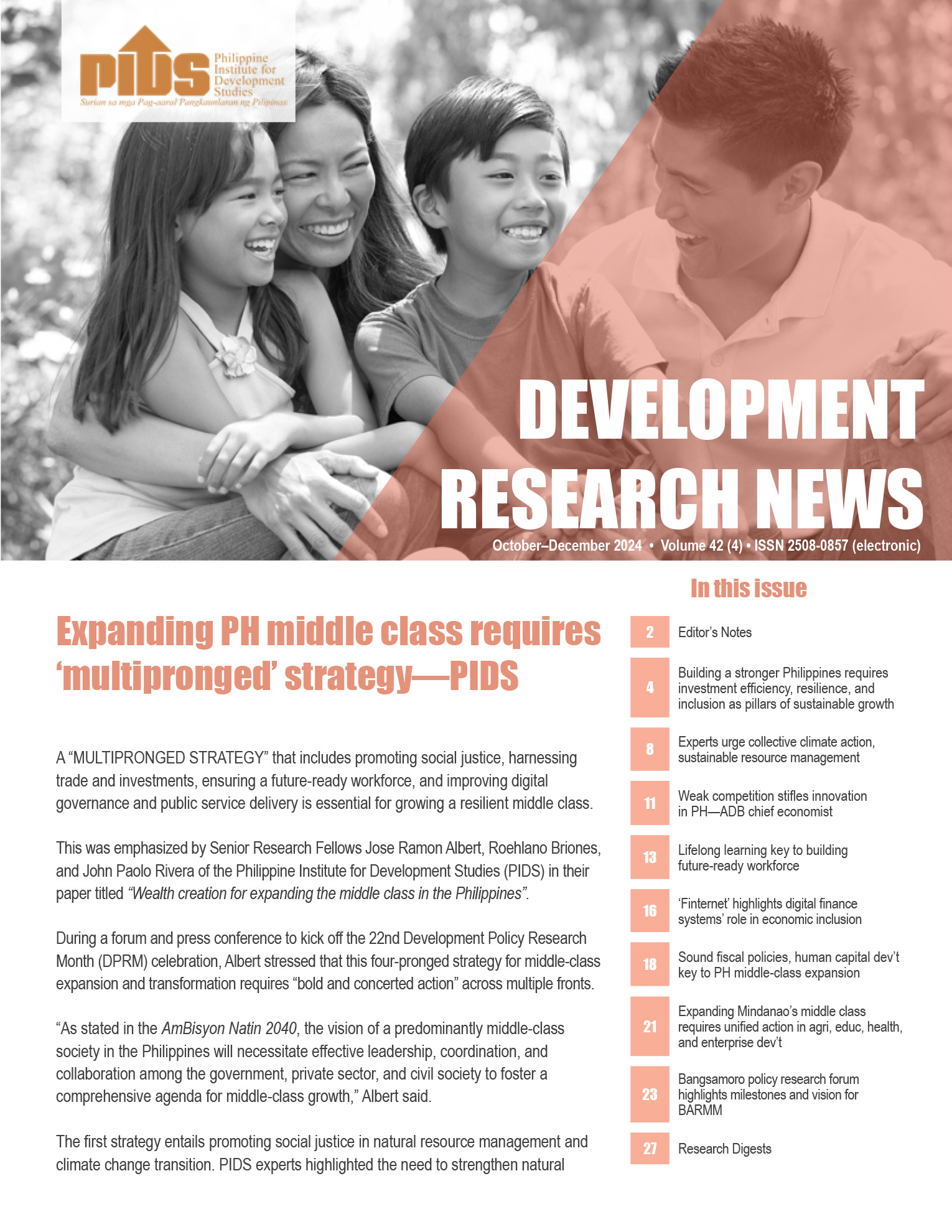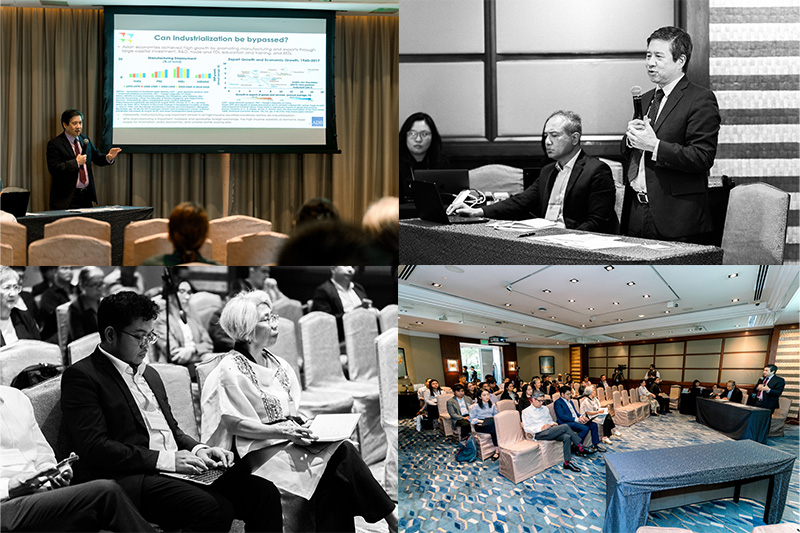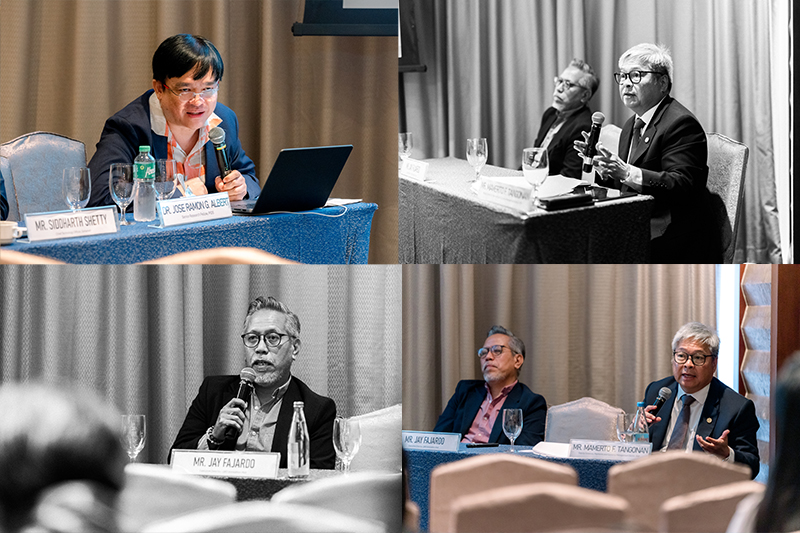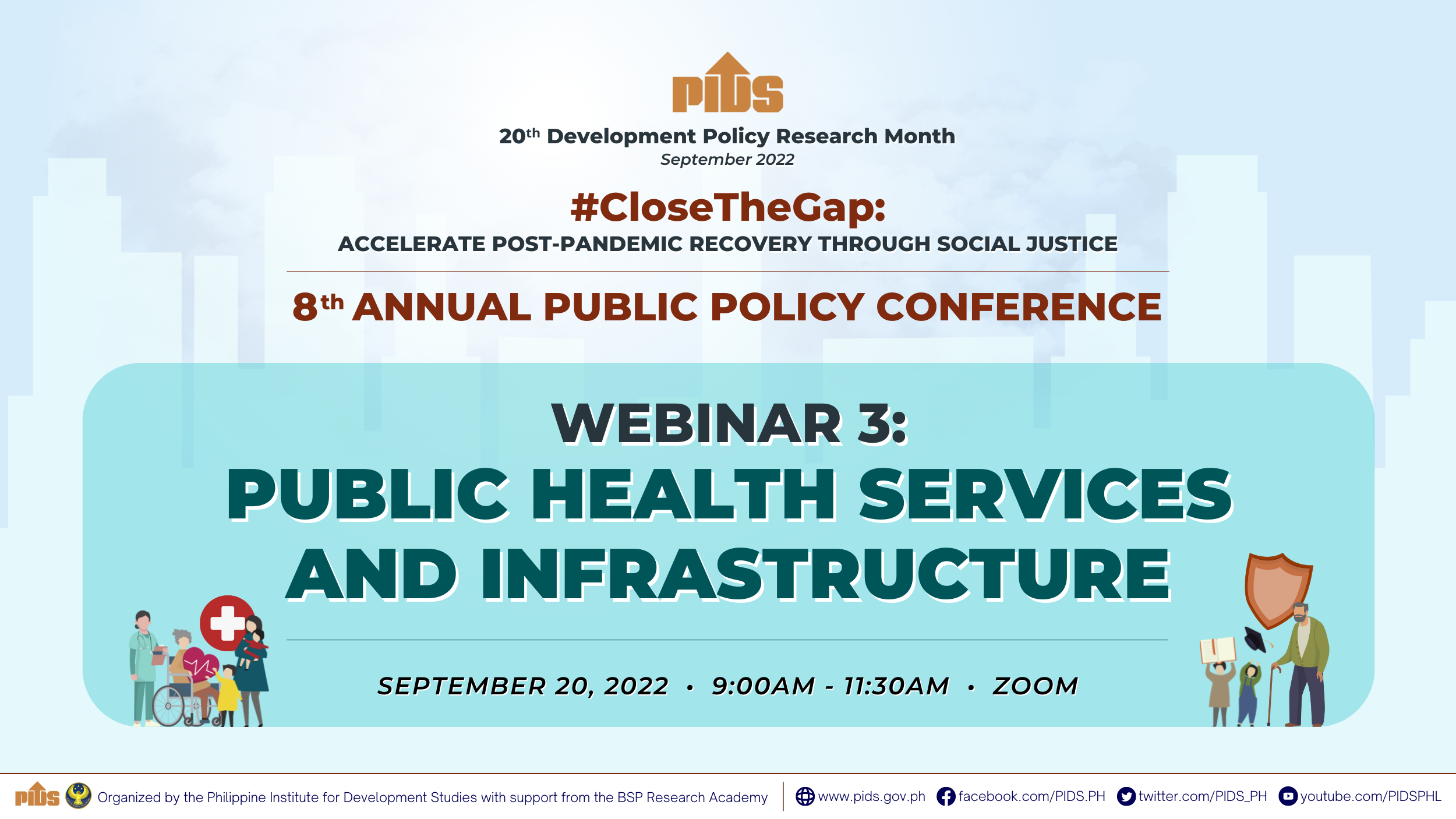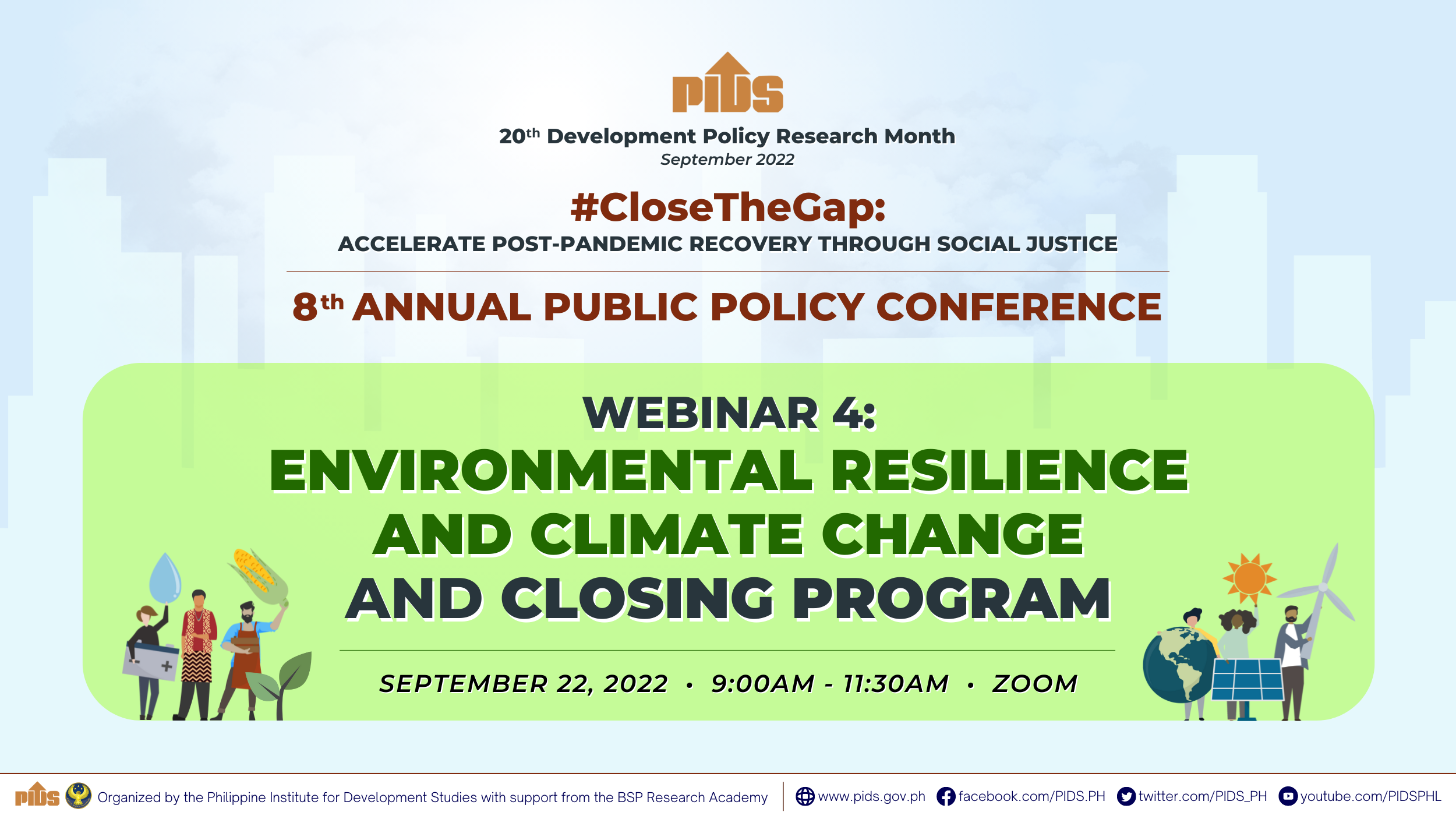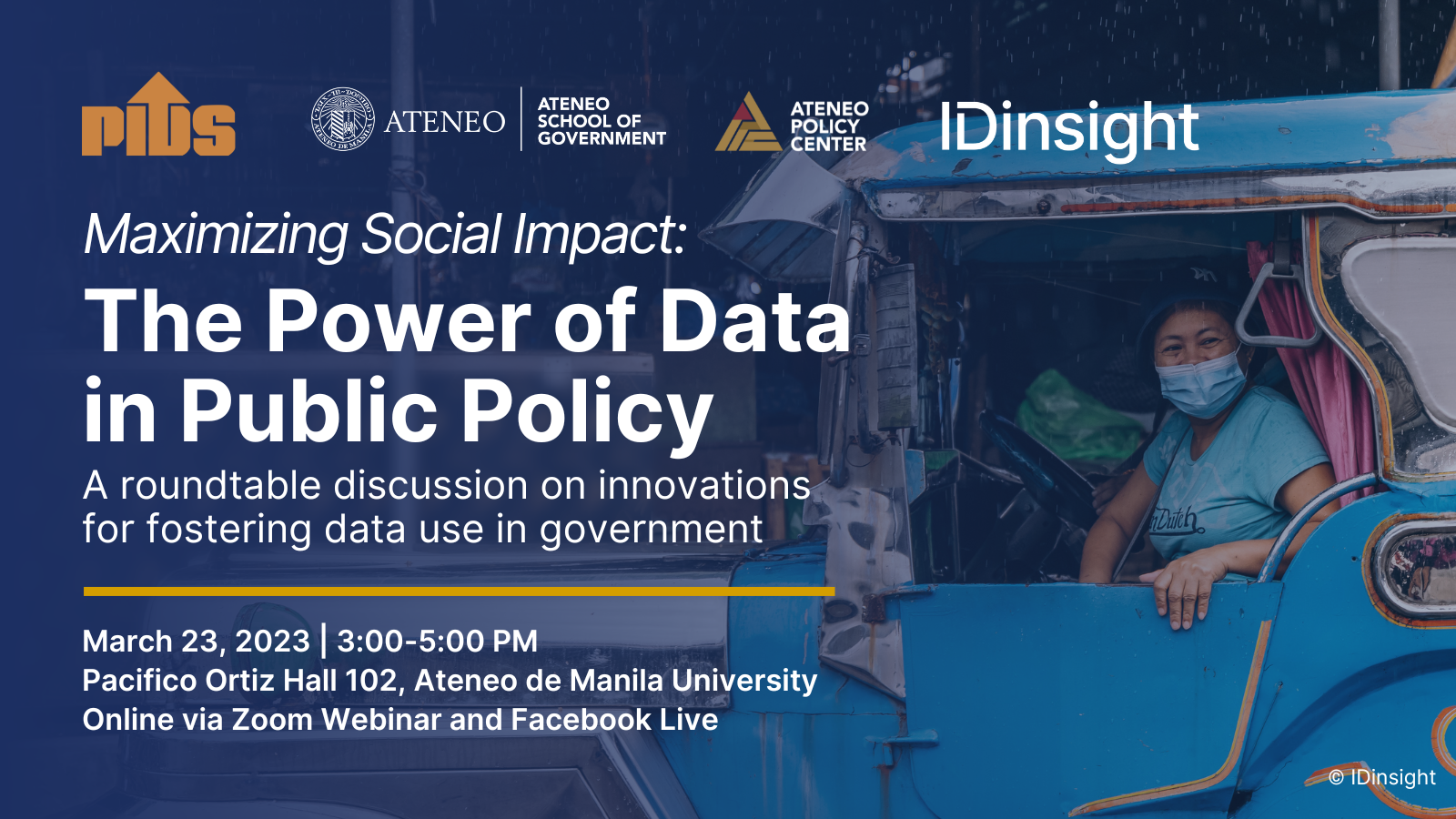
Esteemed data experts and researchers presented success stories and recommendations for using data for evidence-based policymaking and planning in a recent webinar coorganized by the Philippine Institute for Development Studies (PIDS), Ateneo School of Government through the Ateneo Policy Center, and IDinsight.
The webinar, “Maximizing Social Impact: The Power of Data in Public Policy”, featured the Community-Based Monitoring System (CBMS) and Data on Demand (DoD)—systems that generate local-level data to support evidence-based policymaking and planning.
Former PIDS President and CBMS Network Leader Celia Reyes presented the CBMS, a system for collecting, processing, and monitoring household and individual-level disaggregated data implemented by local government units (LGU) with the participation of the community. It was adopted by the government after it was passed into law (Republic Act 11315) in 2019.
According to Reyes, CBMS was developed as a response to the lack of data to monitor the impact of macro policies at the local level. It was pilot tested in Pandi, Bulacan, in 1995. By 2019, its coverage had grown to 30,827 barangays, 1,091 municipalities, and 111 cities. Currently, CBMS is implemented in selected sites in 29 countries in Asia, Africa, and Latin America.
“Local governments have used CBMS to help them in local planning and budgeting and monitoring the impacts of their intervention. But more importantly, CBMS has empowered communities to demand the services they need the most,” she said.
Fellow presenter and CBMS Network Research and Program Officer Anne Bernadette Mandap added that while CBMS requires counterpart investment from partner LGUs, they successfully reduced the operation cost by tapping their personnel, trainees, and scholars and using their equipment.
Meanwhile, IDinsight Global Data on Demand Lead Sarah Lucas shared lessons from DoD, a service that allows collecting quality, representative survey data and processing large amounts of data quickly within days or weeks instead of months. DoD has been implemented abroad and was pitched locally to help the Department of Health capture Filipinos’ knowledge, attitudes, and practices as part of the National Health Promotion and Literacy survey, which will serve as a reference for designing national public health programs and campaigns and allocating resources.
Lucas emphasized that data must be “relevant and reliable for decisionmaking”, tailored to the routine decisions that public agencies make, and institutionalized for public policy by capacitating government agencies to use data frequently. “This allows us to move beyond just discrete decisions with data to bolstering systems and practices that the public sector agencies use over time to make all sorts of decisions,” she said.
Ateneo School of Government Dean Randy Tuaño encouraged the participants to reflect on the process of collecting and producing data and if data for public policy can be truly neutral.
“We need more nuanced research that recognizes and unravels the complex motivations and practices of aid (in humanitarian context), entities, as well as the variety of experiences and perspectives that each subject has with data… For whom, why, and when is data used? This should push us to critically consider how data is collected, processed, and utilized,” Tuaño emphasized.
WR Numero Research Chief Executive Officer and webinar reactor Robin Michael Garcia stressed the importance of local data for nuanced research. “If you look at the data and experiences at the local level, you create a nuanced picture of development realities on the ground. That gives you something close to an indigenous model that fits the local level and responds closely to the experiences of barangays and municipalities,” he said.
BOSES Pilipinas Convenor Imelda Deinla, another reactor, added that stakeholders must work together to foster a culture of data literacy and education amid the rise of fake news and misinformation. “We need to reach out to civil society and many groups interested in shaping policy,” she suggested.
In his closing message, PIDS President Aniceto Orbeta Jr. reminded the participants about the rewards of using quality and relevant data for public policy. “Beyond the numbers, the best impact that local-level data for policymaking brings is facilitating greater transparency and accountability in public service and making citizens feel and know that they truly matter. These are the best motivations we can have in public service and development work,” he said.
Watch the event at https://fb.watch/jATsh4hWjg/ and https://youtu.be/q6fCspzcVOM.
For more videos of PIDS events, go to https://pids.gov.ph/videos. ###

